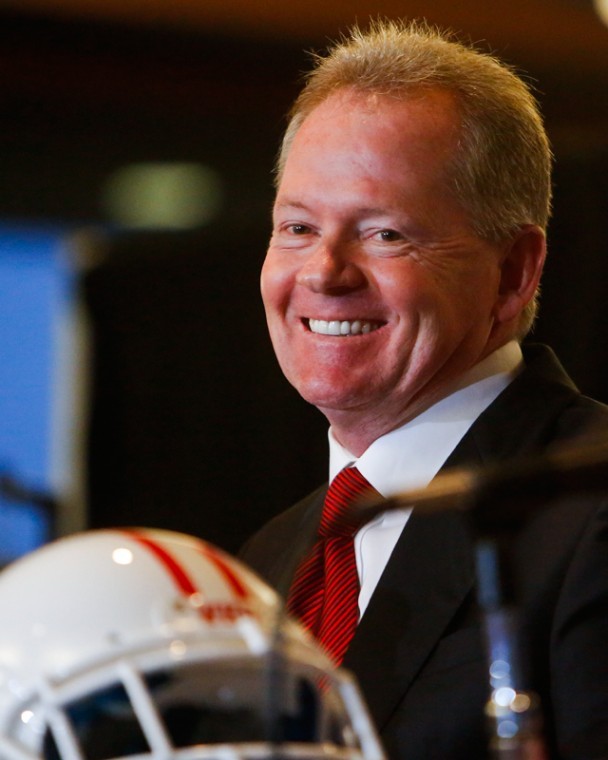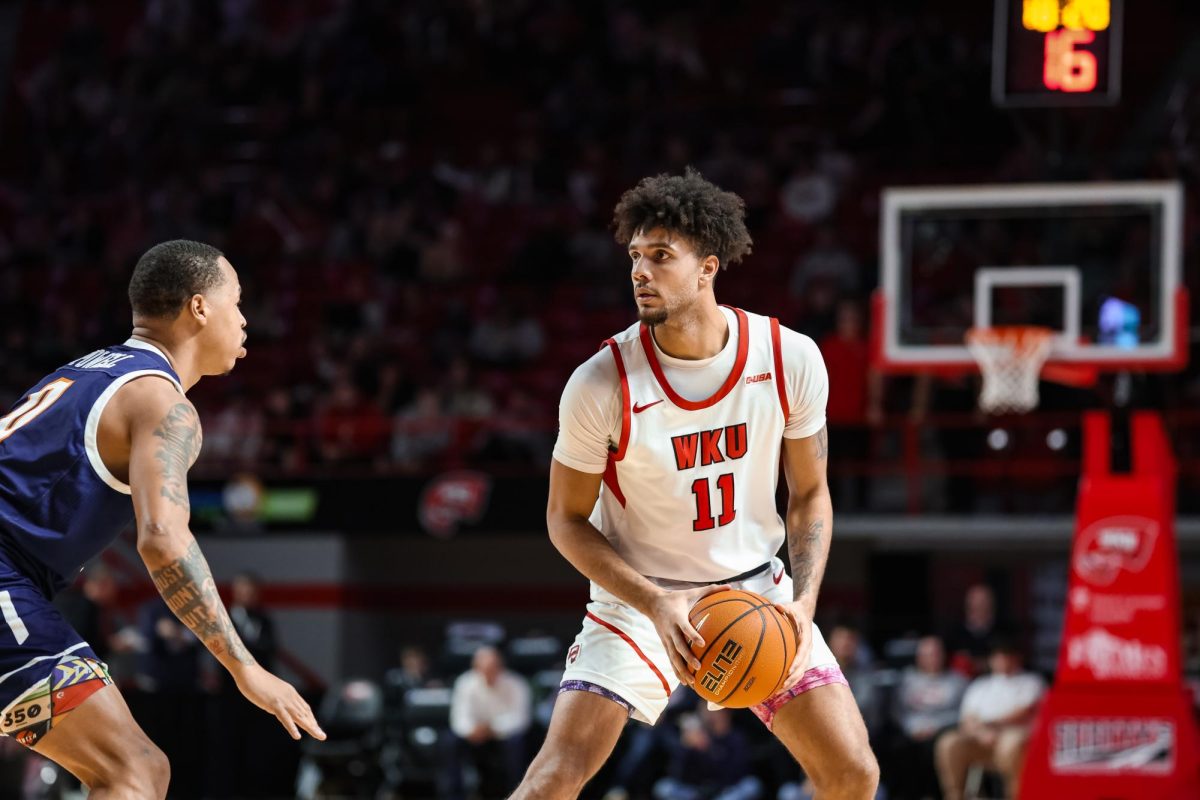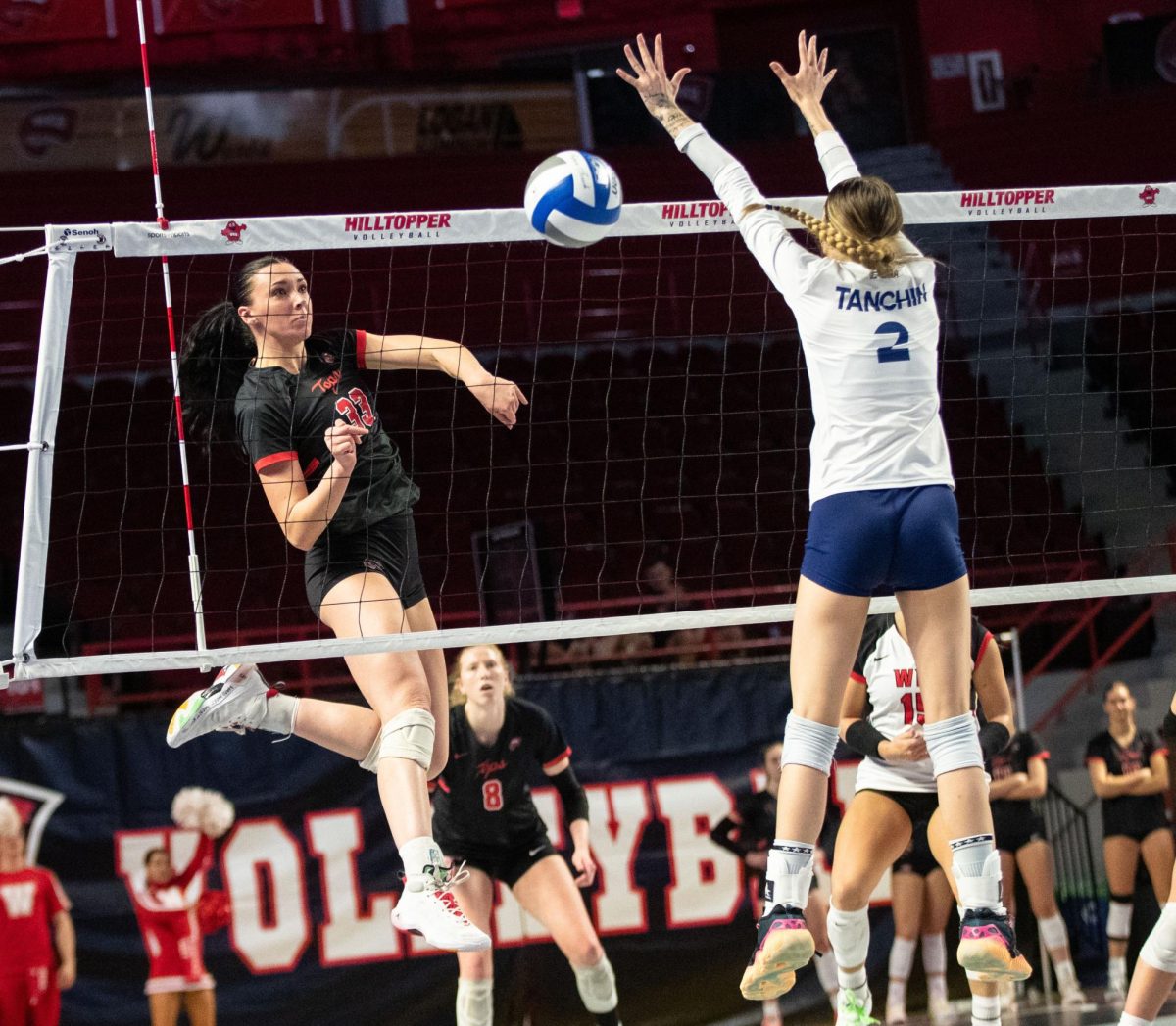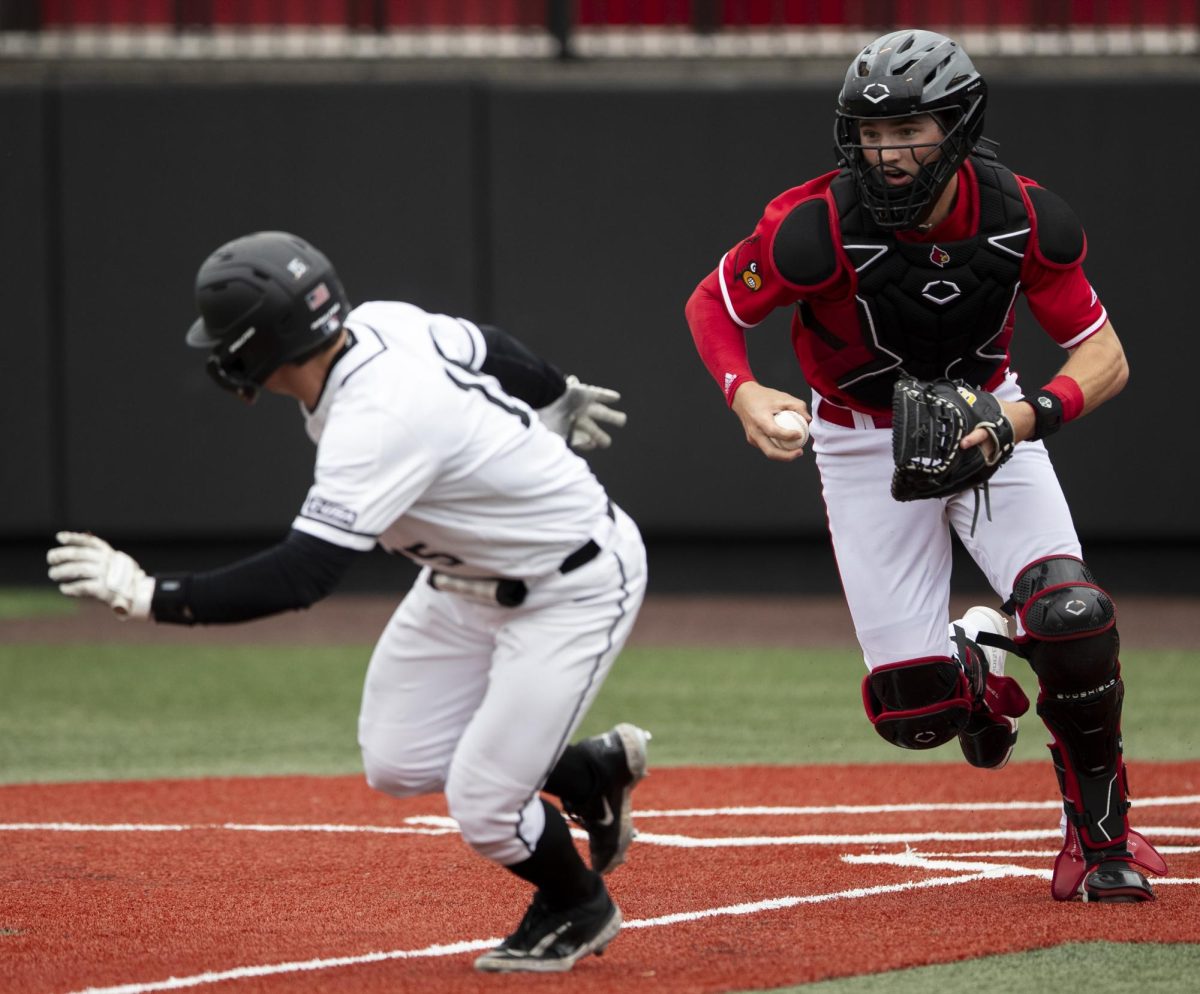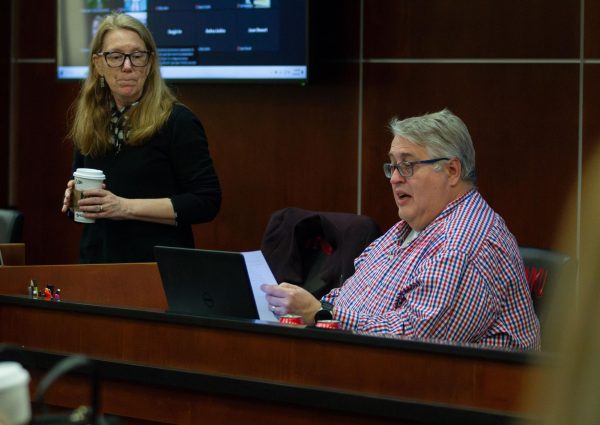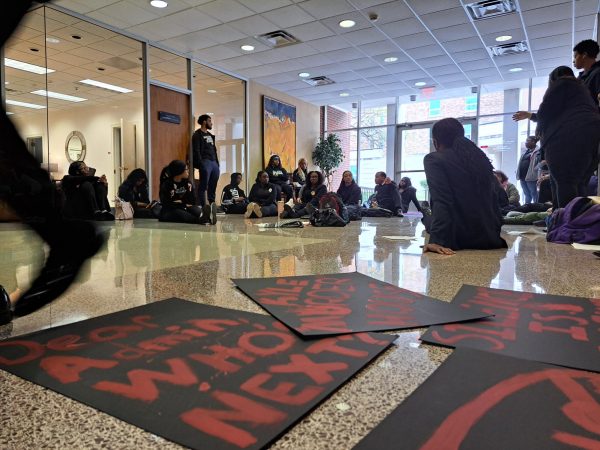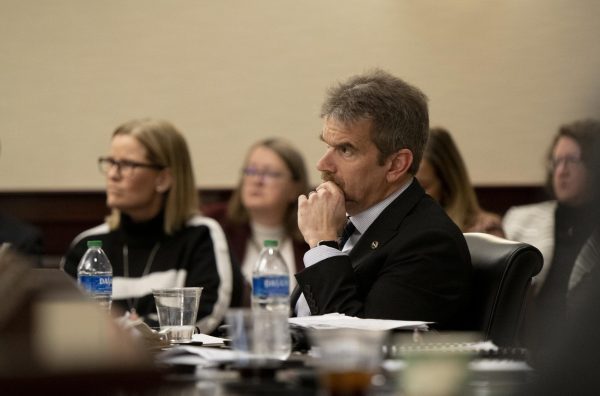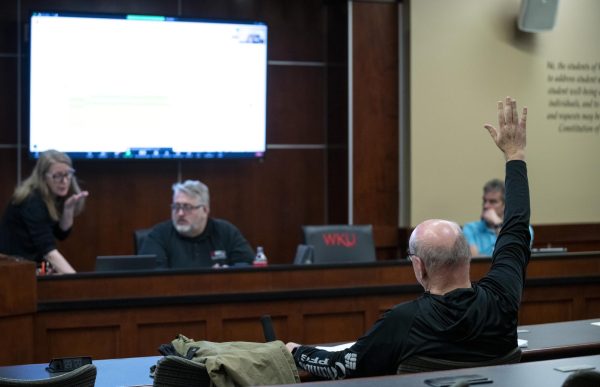Board of Regents approves Petrino’s contract
January 26, 2013
An ice storm couldn’t stop the WKU Board of Regents from voting to approve new football coach Bobby Petrino’s contract in a meeting Monday.
The Board of Regents meeting, delayed from 9 a.m. to 11:30 a.m. because of icy conditions on local roads, featured discussions about several topics concerning the state of affairs at WKU over the course of the nearly three-hour meeting.
The topic of Petrino was one of the most notable issues the Board discussed, though, and while it was eventually approved, it was one of the few points on the agenda that required a discussion between Board members to resolve.
Patti Minter, Faculty Regent, requested at the start of the meeting that the subject of Petrino be further discussed by those in attendance.
She offered a dissenting view of the potential hire, saying she had been approached by several other faculty members following the announcement of the hire who had financial and professional concerns with the new football coach’s contract.
“Faculty concerns fall into three categories – one, potential personnel issues, two, possible damage to the academic reputation of the institution, and thirdly, the major long-term financial commitment to athletics that the hire represents, which is a clear shift toward ever-escalating athletic expenditures,” she said.
Petrino’s contract is much larger than any other WKU has ever given to a football coach.
The contract, which lasts for four years, entitles Petrino to an $850,000 yearly salary and is loaded with incentives – $25,000 if he is named National Coach of the Year, $10,000 for every semester in which the football team posts a cumulative GPA of 3.0 or higher, and $300,000 if the Toppers earn a BCS Bowl berth. It also includes a costly buyout – if the coach terminates the contract at any point in those four years without reason, he will owe WKU $1.2 million.
The yearly salary is significantly higher than that of former coach Willie Taggart, who left WKU in December to take the same position at South Florida. Taggart made $475,000 a year when he accepted the job at USF – now the highest-paid coach in the Sun Belt Conference, Petrino’s yearly salary is $375,000 higher.
Those figures were of high concern to Minter, who said a strong portion of the athletics department’s funding comes from enrollment fees at WKU and such a contract seems to rely on the continued growth of the student body.
“(The athletics department’s) financial fortunes are not entirely revenue-dependent but are, in fact, linked to enrollment,” she said. “If we lose enrollment or growth, that’s revenue that they don’t get.”
She cited a 38-percent increase in athletic spending between 2006 and 2011, an increase from $16.1 million to $22.3 million per year, as an example of a troubling trend for the future of WKU.
“It seems to be the tendency is to just double down and double down and say, ‘If we keep doing this and we keep spending more money, then one day we will make more money,’” she said. “But the evidence doesn’t support that.
“When this program is profitable, then I think we have a different discussion, but I see no evidence that it is.”
The cost of maintaining a coaching staff outside of Petrino was another topic Minter touched on.
Turnover of assistant coaches after a new head coach is hired can be overwhelming – Petrino, for instance, has brought in an entirely new staff of assistant coaches for next season, and Minter said the cost of bringing in new personnel in the event that Petrino leaves would eat up almost all of the $1.2 million WKU would get through the buyout.
“Decisions like this hire demonstrate that WKU is committed to funding entertainment at all costs, even as enrollment flattens, our debt load expands, and other sources of revenue dry up,” she said.
Financial complications were a big concern of other faculty members, according to Minter, but they were not the only issues.
Petrino’s past – he was fired at Arkansas last April after it was discovered he was having an extramarital affair with a woman he had hired to the Razorback football staff – also caused some dissent in the faculty ranks.
“A lot of people received emails from colleagues around the country after the announcement basically laughing at us,” Minter said after the meeting. “Many people who stay silent because they don’t think that they can speak freely can tell you that they do have serious concerns about the academic reputation of the institution being soiled by this.”
She was unable to persuade the rest of the Board to rethink its position, though – Petrino’s contract was approved by the board and Minter was the only member to vote against it.
While Minter was the the only one against approving the contract, she said her concerns were for the sake of the university, not out of spite toward the football program.
“Nobody hopes this works out more than I do – I mean it,” Minter said. “Nobody benefits if something goes wrong here, and nobody benefits if this doesn’t make any money. But I’ve yet to see any evidence in the six years since we moved to FBS that this is going to produce those results.”
WKU President Gary Ransdell chaired Monday’s meeting. He said while he understood where Minter and faculty members were coming from in their concerns, the contract should benefit WKU despite its lofty price tag.
Randsell pointed out that WKU had raised $1 million through private gifts from donors when the school was trying to keep coach Taggart before he left to coach at USF, and because of NCAA rules concerning athletics funding, that money could not be used for an academic purpose and were required to be spent on athletics.
That money, along with funds from rising ticket sales and revenue the Sun Belt will receive from the BCS starting in 2014, will help pay Petrino’s salary.
Ransdell said the high price of the contract could turn out to be a small price to pay if the WKU football program can capitalize from the hire.
“We think it’s a superb contract, and all the financials are in the university’s favor,” Ransdell said. “It has tremendous upside potential. In every decision you measure your upside potential against your downside risk, and when your upside potential far outweighs your downside risk, you go with it.”


